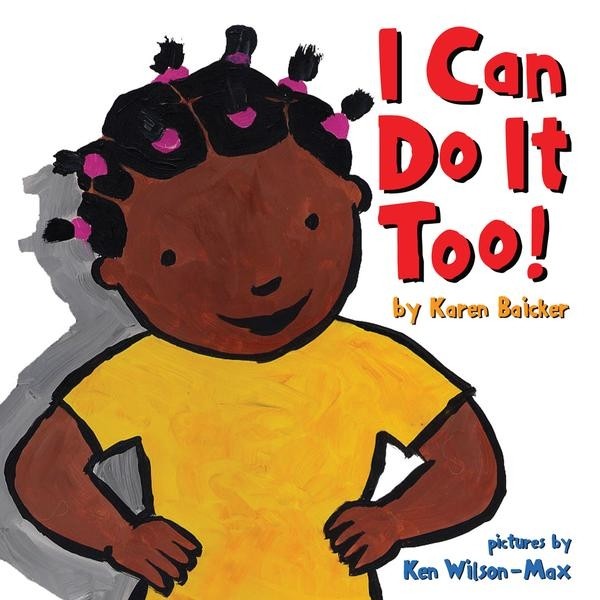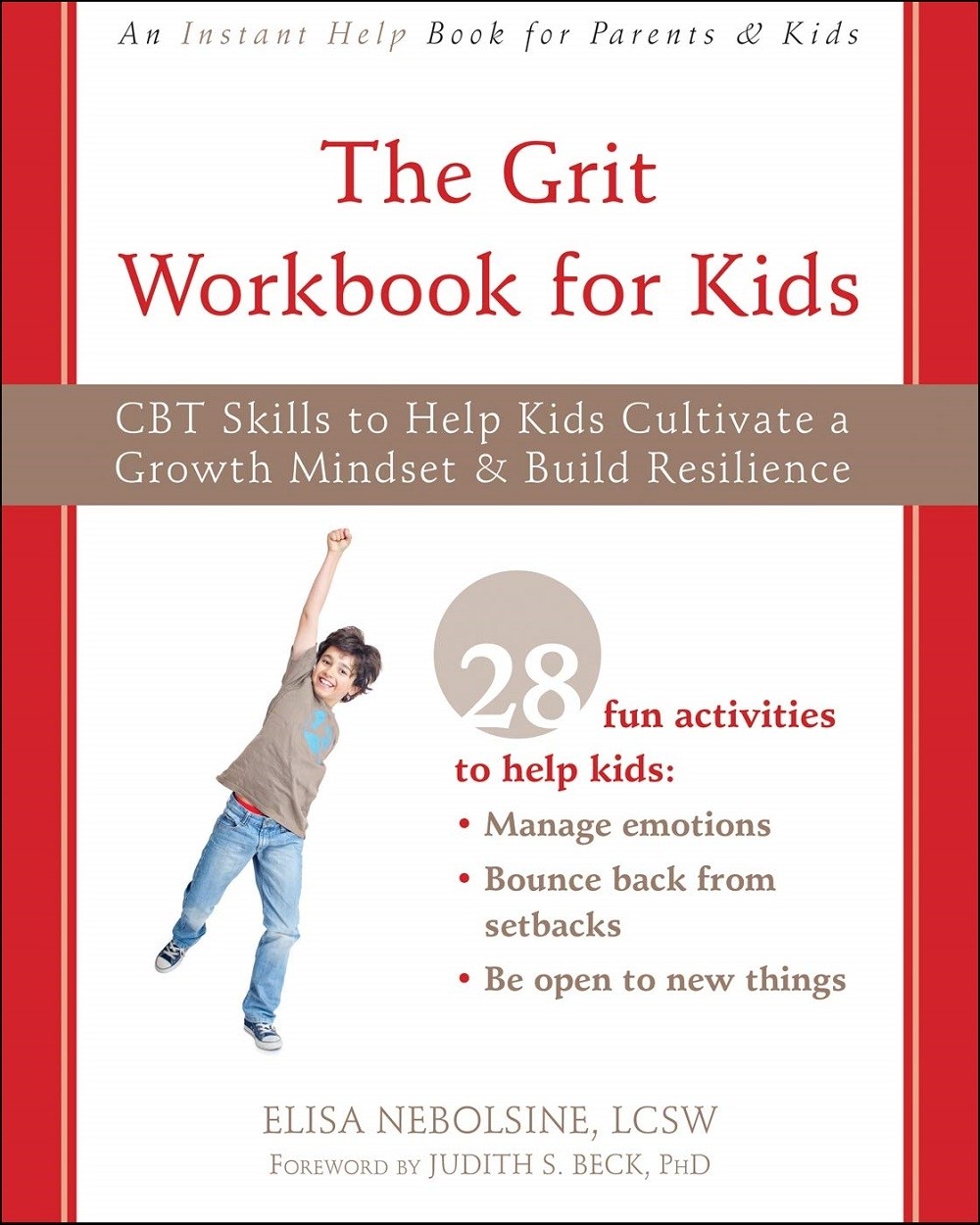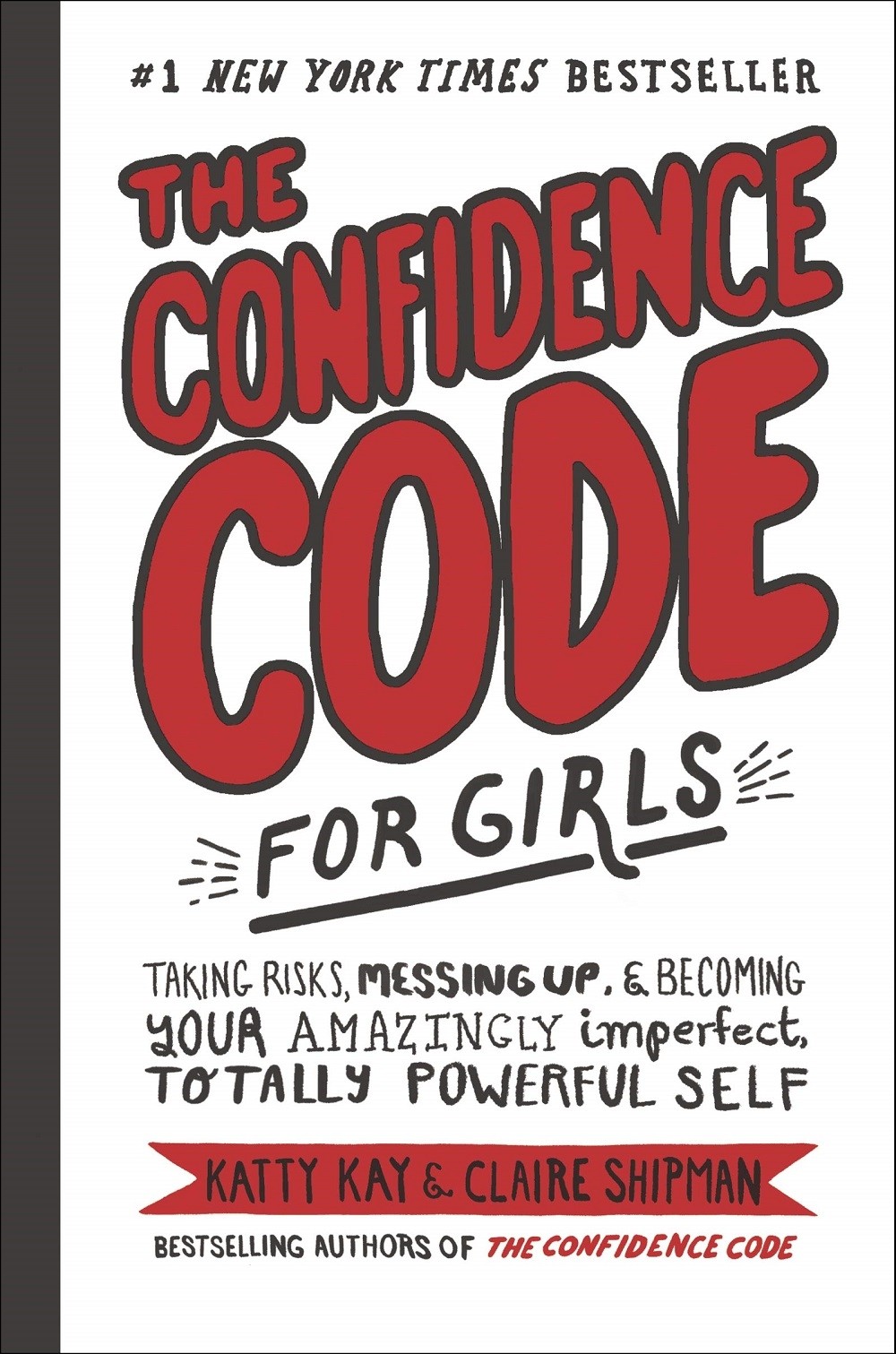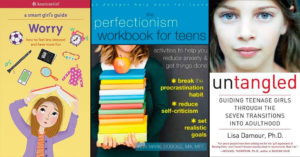"The kids who are getting this process praise, strategy and taking on hard things and sticking to them, those are the kids who want the challenge."
 We all want to motivate Mighty Girls to be their best, but did you know that how you praise girls can make a big difference to their resilience and self-confidence? Stanford professor Dr. Carol Dweck, one of the world's leading researchers in the field of motivation and the author of the bestselling book Mindset: The New Psychology of Success, has found that there is a strong praise paradox for girls: "Praise for intelligence or ability backfires," she asserts. By understanding why telling a girl things like "you're so smart" can actually make her less confident, and by finding more effective ways to praise girls instead, parents and teachers can help foster an attitude that keeps them striving for success — even when the going gets tough.
We all want to motivate Mighty Girls to be their best, but did you know that how you praise girls can make a big difference to their resilience and self-confidence? Stanford professor Dr. Carol Dweck, one of the world's leading researchers in the field of motivation and the author of the bestselling book Mindset: The New Psychology of Success, has found that there is a strong praise paradox for girls: "Praise for intelligence or ability backfires," she asserts. By understanding why telling a girl things like "you're so smart" can actually make her less confident, and by finding more effective ways to praise girls instead, parents and teachers can help foster an attitude that keeps them striving for success — even when the going gets tough.
It all starts with Dweck's concept of "mindset": whether you believe that your abilities are fixed or that they can be improved with practice. If you have a fixed mindset, you're more likely to give up when you find a task challenging, because all the effort in the world won't make up for your lack of innate ability. Although a fixed mindset can be detrimental anytime you encounter a challenging task or area of study, it's especially common in certain areas. “Of all the subjects on earth, people think math is the most fixed,” explains Dweck. “It’s a gift, you either have it or you don’t." Due to this belief, if they aren't achieving the perfection they are aiming for, many girls will begin to avoid subjects where they might fail, as seen when many girls drop math and science subjects in middle and high school.
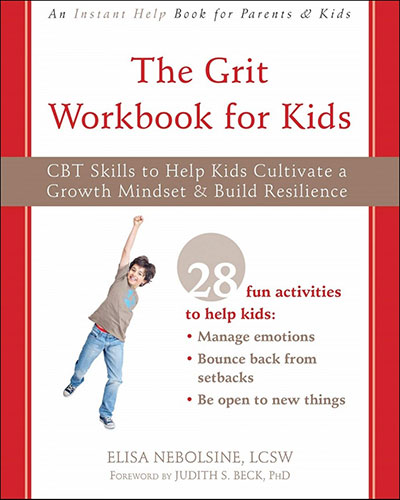 With a growth mindset, on the other hand, you believe that you can improve with practice. That means you're more likely to persist and to see failures as an opportunity. “If you have little failures along the way and have them understand that’s part of learning," Dweck asserts, "and that you can actually derive useful information about what to do next, that’s really useful." Her research has also found that a growth mindset can help armor girls against sexist attitudes: "We have research showing that women who believe math is an acquired set of skills, not a gift you have or don’t have, fare very well. Even when they have a period of difficulty and even when they’re in an environment that they say is full of negative stereotyping."
With a growth mindset, on the other hand, you believe that you can improve with practice. That means you're more likely to persist and to see failures as an opportunity. “If you have little failures along the way and have them understand that’s part of learning," Dweck asserts, "and that you can actually derive useful information about what to do next, that’s really useful." Her research has also found that a growth mindset can help armor girls against sexist attitudes: "We have research showing that women who believe math is an acquired set of skills, not a gift you have or don’t have, fare very well. Even when they have a period of difficulty and even when they’re in an environment that they say is full of negative stereotyping."
In her research, Dweck has found that girls, in particular, tend to think that abilities are fixed — that people are born with a particular talent or ability or they aren't. Psychologist Dr. Heidi Grant Halvorson, the author of Nine Things Successful People Do Differently, adds that further research has shown that bright girls are particularly prone to a fixed mindset: "More often than not, bright girls believe that their abilities are innate and unchangeable, while bright boys believe that they can develop ability through effort and practice." This difference in attitude is believed to develop in large part due to the kinds of praise and feedback children receive from parents and teachers.
"Girls, who develop self-control earlier and are better able to follow instructions... are told that we are 'so smart,' 'so clever,' or 'such a good student,'" Halvorson points out, "[which implies] that traits like smartness, cleverness, and goodness are qualities you either have or you don't." At the same time, boys — who are corrected in the classroom eight times more than girls on average, often due to losing focus or misbehaving — are regularly told "if you would just pay attention you could learn this" or "if you would just try a little harder you could get it right," which teaches them that their effort directly affects their success. According to Halvorson, the difference in feedback teaches both groups subtle messages about what it means when they encounter something difficult: "girls take it as sign that they aren't 'good' and 'smart', and boys take it as a sign to pay attention and try harder."
Dweck's research highlights this connection between the praise we give and a child's willingness to keep trying a challenging task. "What we’ve shown is that when you praise someone, say, 'You’re smart at this,' the next time they struggle, they think they’re not," she says. But if you praise the process they engage in — such as "taking on difficulty, trying many different strategies, sticking to it and achieving over time" — they're more likely to develop a growth mindset, which fosters resilience and grit that helps them thrive even when they encounter challenges. In her research, Dweck also found that children's beliefs about their learning ability start developing early: "Mother’s praise to their babies, one to three years of age, predicts that child’s mindset and desire for challenge five years later. It doesn’t mean it is set in stone, but it means that kind of value system — what you’re praising, what you say is important — it’s sinking in."
How to Give Process-Praise vs. Person-Praise
For parents and teachers who would like to encourage a growth mindset in Mighty Girls, here are a few examples of how to apply these principles in practice.
| Person-Praise | Process-Praise |
|---|---|
| Good job! You're so smart! | I'm impressed by all the creativity and hard work that you put into this project. Good job! |
| I knew you were great at math! See you got an A! | Great job! All that time you put into practicing math problems really paid off on this test. |
| That essay was great! You're such a good writer. | I love that you spent extra time brainstorming and researching the topic of your essay. It was fascinating to read! |
| You scored two goals this game; you're a soccer star! | Great game! All that time practicing your footwork paid off with those stellar goals! |
One pitfall that Dweck highlights for parents and educators is to make sure that their process-praise isn't focused solely on effort but on showing how a child's effort led to success or furthered the learning progress. "Students know that if they didn’t make progress and you’re praising them, it’s a consolation prize," she says. "They also know you think they can’t do any better." This misunderstanding of how to praise kids prevents them from learning to switch strategies if their effort isn't paying off. "Students need to know that if they’re stuck, they don’t need just effort. You don’t want them redoubling their efforts with the same ineffective strategies," Dweck argues. "You want them to know when to ask for help and when to use resources that are available."
When we praise girls for their effort and their determination, the end result is positive in so many ways. It takes the focus off perfection, encouraging them to take risks, try new challenges, ask questions, and keep trying. That will serve them well, not just during their childhood and teen years, but throughout their life. As Dweck observes, "the kids who are getting this process praise, strategy and taking on hard things and sticking to them, those are the kids who want the challenge."
Books Encouraging Growth Mindset in Children and Adults
I Can Do It Too!
I Can Do It Too!
This little girl is proud to show all the people around her how independent she can be! Whether she’s pouring juice at breakfast or riding a bike, her attempts may not always be perfect, but she knows that, with practice, there’s nothing she can’t learn to do. The bold artwork depicts the adults on one page and the little girl on the other, making this book fun as a read-aloud or for kids to look at independently.
The Most Magnificent Thing
The Most Magnificent Thing
The little girl in this story has an idea in her head for the most MAGNIFICENT thing... so with the help of her puppy sidekick, she collects some bits and pieces and starts building. Except that the result isn't quite as magnificent as she wanted, so she tries again... and again... and again. Eventually, frustration overtakes her, and she not only smashes, pummels, and explodes, she also quits. It's not until she takes a walk with her dog and clears her head that she can see the potential in all her previous design and build something that she really does feel is magnificent. This fun picture book sends a great message to young readers about the importance of persistence.
I Can't Do That, YET
I Can't Do That, YET
Enna loves stories before bed, but whenever her dad asks her to try reading the first page, all she can say is "I can't do that." In fact, that's the first phrase that comes to mind for anything difficult! But one night, she meets her future selves — Ennas who did all sorts of difficult, daring things — who tell her that any of those possibilities could happen with time and practice. By the time she wakes up, Enna realizes that "I can't do that" has become "I can't do that YET!" This empowering story will encourage kids to transform their own way of thinking.
The Girl Who Never Made Mistakes
The Girl Who Never Made Mistakes
Beatrice Bottomwell has never made even a single mistake in her nine years alive — in fact, her whole town knows her as The Girl Who Never Makes Mistakes. But when she almost makes her first right before the big talent show, she's rattled. Suddenly, she starts avoiding things she used to love, just in case she makes a mistake while she's doing them. However, when the inevitable happens and she does make a — very public and messy — mistake, something amazing happens: she laughs it off! It turns out that life is more fun when you realize that mistakes can be overcome... and that no one is perfect. This charming picture book will encourage kids to shake off their mistakes and get ready to try again.
The Grit Workbook for Kids
CBT Skills to Help Kids Cultivate a Growth Mindset and Build Resilience
The Grit Workbook for Kids
CBT Skills to Help Kids Cultivate a Growth Mindset and Build Resilience
When a kid has grit, they're able to see problem as temporary setbacks, and persevere so they can thrive! Not all kids start out with this empowering mindset, but with a little help, they can build self-control and develop the tenacity they need to achieve their goals. In this workbook, which uses techniques grounded in cognitive behavioral therapy (CBT), kids will learn about the tools and strategies that make up grit — and discover how they can apply them in their everyday lives. With a kid-friendly tone and plenty of tips for supportive adults, this workbook from the Instant Help for Parents and Kids series is the perfect choice for anyone who wants to help kids grow grit.
What To Do When Mistakes Make You Quake
A Kid's Guide to Accepting Imperfection
What To Do When Mistakes Make You Quake
A Kid's Guide to Accepting Imperfection
Everyone makes mistakes sometimes... but for some kids, the possibility is terrifying. Perfectionism can trap kids in their worries, and even discourage them from trying something new and challenging in case they don't measure up. And with self-critical thoughts raging, it's hard to build confidence. Fortunately, with this interactive book, kids can learn to use cognitive behavioral approaches to understand their worries, quiet critical thoughts, and cope with mistakes. Encouraging and empowering, this accessible guide will help kids learn to live with imperfection and motivate them to push their limits.
The Confidence Code for Girls
Taking Risks, Messing Up, and Becoming Your Amazingly Imperfect, Totally Powerful Self
The Confidence Code for Girls
Taking Risks, Messing Up, and Becoming Your Amazingly Imperfect, Totally Powerful Self
Many girls are consumed by self-doubt on the inside, especially during the tween and teen years — but if they can crack the confidence code, they can learn how to set worries aside and focus their energy on what's really important: confidently pursuing their dreams and embracing their authentic selves! In this book, Katty Kay and Claire Shipman, the authors of the best-selling The Confidence Code for adult women, draw on the latest research to help tweens understand how to short-circuit the thoughts that drain your confidence and hold you back. Illustrations throughout help draw girls into the book, while lists, quizzes, and stories from real-life girls help readers understand how to embrace risk (and failure), overcome anxieties, and be happy in their own skins. Girls will also enjoy the companion journal which will help them put these skills into practice, as well as Living The Confidence Code, which shares the stories of 30 real girls pursuing their passions.
The Grit Guide for Teens
A Workbook to Help You Build Perseverance, Self-Control, and a Growth Mindset
The Grit Guide for Teens
A Workbook to Help You Build Perseverance, Self-Control, and a Growth Mindset
Want to power through the challenges in your life and achieve your goals? Then you need grit! The term "grit" encompasses all the attributes you need to accomplish what you want, from tenacity to self-control to the ability to bounce back from failure. This guide introduces teens to the concepts of grit and growth mindset — focusing on improvement and hard work — and shows them how these ideas can translate into turning disappointment into opportunity, embracing challenges, managing stress, and more. After all, life isn't necessarily about being the best of the best; it's about being the best YOU that you can possibly be!
The Gift of Failure
How the Best Parents Learn to Let Go So Their Children Can Succeed
The Gift of Failure
How the Best Parents Learn to Let Go So Their Children Can Succeed
As a parent, it's easy to fall into the instinct to protect your child from hurt — even if that means the disappointment and frustration that comes from failing. But as teacher and writer Jessica Lahey explains, how to fail — and how to get up, dust yourself off, and try again — is a key skill that kids need to learn young, when the stakes are still low. In her book, Lahey lays out the case for allowing kids to fail, and to feel the full emotional brunt of that failure, and shows parents how to model and teach resiliency and problem-solving. Individual chapters target particular challenges like homework, report cards, and sports. This celebration of the value of reaching high and missing the mark will make you think differently about how you respond to your child's mistakes and problems.
The Curse of the Good Girl
Raising Authentic Girls with Courage and Confidence
The Curse of the Good Girl
Raising Authentic Girls with Courage and Confidence
For too long, the image of the "good girl" has meant being nice, meek, and selfless — but when girls try to force themselves into the "good girl" mold, they end up curtailing their power and potential. Rachel Simmons argues that the people-pleasing, rule-following model of femininity creates flawed communication and a fear of confrontation that discourages girls from achieving their goals. To help, Simmons provides exercises to help girls hear their inner voice, be polite but assertive with authority figures and peers, and stay true to themselves. By teaching our girls to be authentic to their own needs and desires, we give them the freedom to create their own futures.
NurtureShock: New Thinking About Children
NurtureShock: New Thinking About Children
This groundbreaking book turns everything we "know" about kids on its head — including the idea that praising kids for being smart, special, or talented will encourage them to succeed. Award-winning science journalists Po Bronson and Ashley Merryman explore the actual research about child development and neurobiology that shows why praise on its own doesn't provide either motivation or confidence. Their book is a rallying cry to separate good intentions from good ideas and make sure our kids have what they need to thrive.

Many people think that talent is the key to success — but we all know talented people who never live up to their potential, and people who thrive despite enormous obstacles. Celebrated researcher and professor Angela Duckworth says that the difference is grit, a combination of passion, perseverance, and drive that can push people to achieve heights they'd never thought possible. In her best-selling book, she lays out what she's learned from high-achievers and reminds readers that grit can be learned, and how what you think when you fall down determines whether, and how quickly, you get back up again. This fascinating and inspiring book is an important reminder of the power of persistence and practice.

What makes the difference between someone who perseveres until they succeed, and someone who gives up? The answer is mindset! Stanford University psychologist Carol S. Dweck has conducted decades of research into how mindset affects performance, and in her book she talks about how developing a growth mindset — the belief that abilities can be developed — helps set the stage for achievement. A selection of case studies highlight the differences between fixed and growth mindset, while the included tips can help parents and educators foster growth mindset in both individuals and communities, so that everyone can reach their full potential.

You can bring growth mindset into the classroom with this book that encourages kids to see how their efforts make a difference to their success! This month by month program uses research-based activities to foster resilience, perseverance, and grit in kids. A selection of hands-on lesson plans provide a variety of options for different ages and personalities, while real-life stories from teachers show how incorporating growth mindset can help kids thrive. For more ideas, check out The Growth Mindset Playbook.









